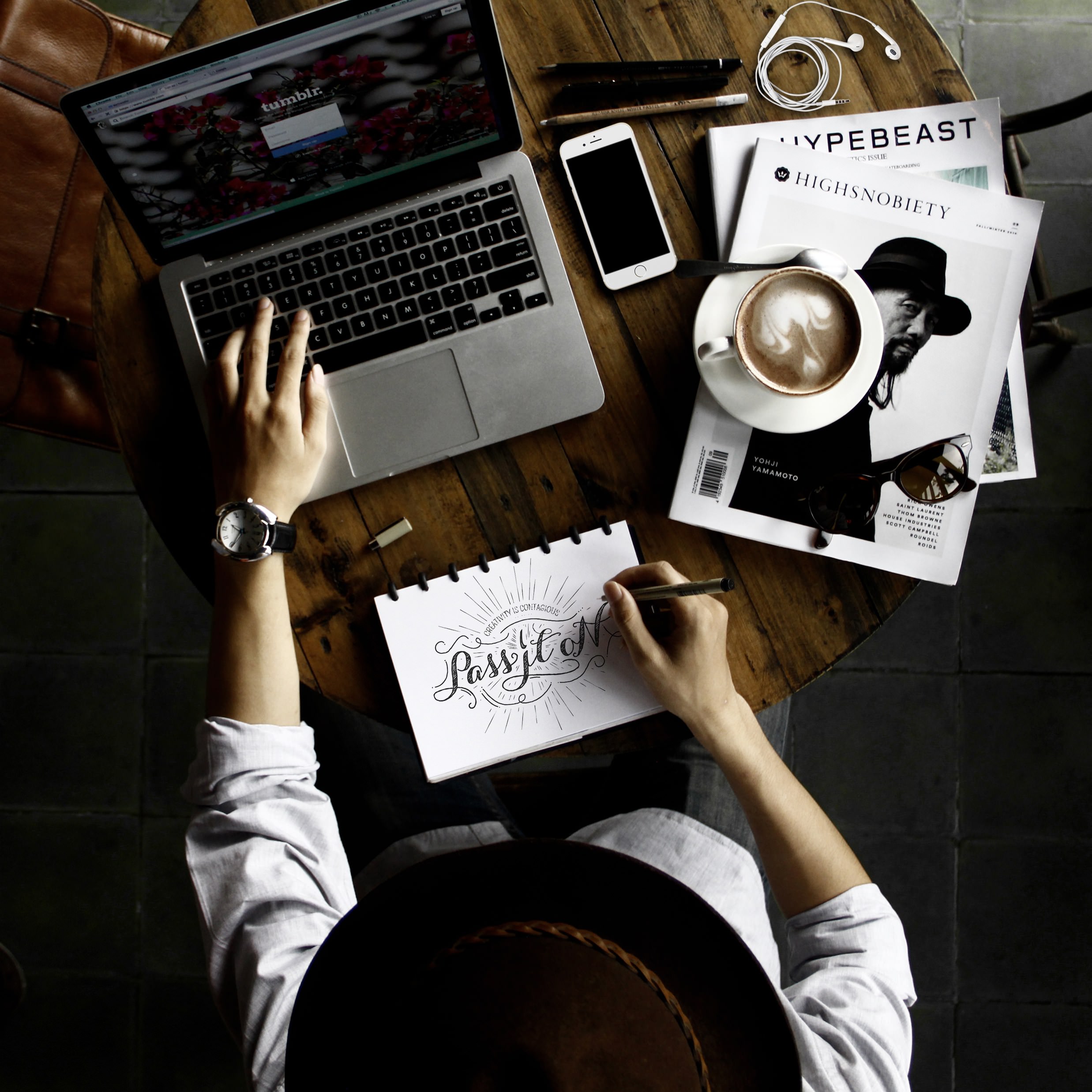
Christy Johnson, founder of Artemis Connection is a small town girl from Washington turned teacher turned entrepreneur on a mission to bring health and creativity to the workplace.
If you suffer from stress at work, this interview is for you.
Christy shares how stress in the workplace impacted her, how she overcame it, and how she’s leveraging a previous pain point to now change organizations.
Burnout and stress don’t only inhibit our well being, but they prevent us from reaching our maximum potential. Even worse, they can have long-term consequences on our confidence.
Read Christy’s story as she shares her ups and downs in the workplace, how she found work with meaning, and what she says are the three things you need to do to work from a place of health.
 Where are you from, and where did you grow up?
Where are you from, and where did you grow up?
I live in Mukilteo which is right on the Puget Sound (and is 20 minutes north of Seattle and 20 minutes northwest of Bellevue).
My hometown is Ferndale, Washington, a small town 15 minutes south of the Canadian border. When I graduated high school about 10 percent of my class went to college, and that includes community/technical college. It was a really big deal when McDonald’s came to town my senior year.
Can you think back to when you were 22? Tell us about your first job and where you started out.
When I was 22 I had just graduated from undergrad, and I was teaching high school in Bellingham, Washington. I had a great blend of European history, mathematics and economics. In many ways, teaching economics was my first start up.
Economics wasn’t taught at the school so I had to convince the school district to offer it, convince my school to fund it, and convince organizations like Junior Achievement to equip my class with text books, and sell students on why they should take it.
Then came the really hard work of making it an amazing experience so students told their friends and more students would enroll.
What impact did this experience have on you?
The experience taught me about perseverance, the power of a team and building a compelling vision people can rally around.
Let’s now talk about your mission. What’s the work you want to do, and how did you identify it – especially transitioning from teaching to becoming an entrepreneur?
My mission is to make human sustainable workplaces.
My twins were 7 weeks early and to this day, I wonder if it was due to my high-pressure corporate job. (I Skype’d with the CEO the night before they were born, and I traveled weekly.)
I promised myself that if the boys made it out of the hospital and they were healthy, I wanted to give back.
As I started researching the impact of stress – and specifically the impact of workplace stress (where we spend one third of our lives!), I wanted to focus on building human sustainable workplaces as I firmly believe doing so will unleash more creativity and productivity in the workplace.
How can stress impact creativity and productivity?
It’s hard to be creative if you are constantly stressed, worried your boss is going to yell at you or wondering if you are doing a good job. Toxic stress increases the rates of diseases, mortality and lowers our immunity. What this looks like for individuals varies.
Plus there’s a lot of waste in the workplace with people jockeying for more political positions or spending time doing the work of others, or even sitting in meetings versus doing work that matters.
There’s a better way to structure the workplace so we could foster creativity and productivity.
We have to care about our employees and their well-being. We need to first define what’s unsustainable.
Having set vacation and sick days and some predictability with hours matters, especially for parents who are also juggling finding quality childcare.
Did you struggle to identify your mission?
The mission has always been there. It’s why I was drawn to teaching math and economics. I believe people with the right training and teams can solve the hard problems in the world.
Having the confidence to pursue it, however, took a while. I always felt like I needed another skill or more experience or another degree. So I struggled to realize I was uniquely positioned to fulfill the mission.
Where did you find the confidence to push forward?
I pushed myself to not make it about me. Is there a problem? Yes! I see so many amazing people who want to work but aren’t finding flexible options.
What has been the result of doing mission-driven work?
We’ve seen tremendous growth in some of our customers. When we find a progressive executive whose mission aligns with ours, my team gets excited. We obsess about their strategy and team needs and how to build a human sustainable organization.
We’ve seen organizations who embrace our strategies improve employee health, strategic execution and reduce costs.
Personally, I’m also much healthier physically and mentally than I ever have been. Being an entrepreneur is tough but being committed to the mission keeps me excited to get up and work each day.
Many 20 to 30-somethings are still struggling to get clear on the work they want to do. What advice do you have for them?
In my twenties, I worried a lot. Now I see this was wasted energy as it distracted me from learning, reduced my willingness to take risks, and prevented my ability to build relationships.
Try a lot of different things because you have time to overcome something that doesn’t work. Consider each new experience a chance to learn.
And what advice do you have for 20 to 30-somethings who are feeling stressed at work?
Context and environment matters. If you’re in a stressful work situation, consider the following:
- Determine if the leader is toxic. I wish I’d accepted sooner that some people are just bad news, and how good my work was or how much I did for them would never be enough. Ask yourself, can I switch bosses? Divisions? Companies?
- Pay attention to actions, not words. Many leaders pride themselves on being coaches. Look at how they actually treat people.
- Build your reputation and relationships. You need a good defense system and good advice. There are amazing mentors and super bosses in the world. Find them and learn as much as you can from them.



Working for myself seems to be the best option and I am not in the 20-30 age range. I realize it’s tough to be an entrepreneur but it’s better than working for for a company where there is no promotional opportunities and cronyism. The upside is that we have a flexible work schedule and are self-managing. The downside is that we need to get permission to do any marketing. Most ideas we come up with are shot down.
Hi There! Thank you so much for your comment. As an entrepreneur myself I completely relate to what you’re saying. There are definitely ups and downs with both corporate + running your own business. It’s easier to make those choices though when we think about our long term goals and our values. Seems like you’ve done that too! 🙂
I’ve been trying to figure out if my work situation rly is “toxic” or if Im just sensitive and unexperienced. It is very stressful but I am learning a ton and can totally see how this is preparing me for a potentially tough entrepreneurial journey. Sticking w it for the learning experience but planning to switch things up after I hit the 1 yr mark. Thanks for this article- reminds me that I shouldnt take it so seriously or so personally.
Thanks so much for your comment Sierra! I love that you say that your current job is preparing you for the tough entrepreneurial journey. It sounds like you’re making the most of it (YEAH!). However, if you’re thinking your job may be toxic, be careful because there can be long-term negative side effects. Here’s an article on figuring out if your workplace is toxic. https://workbigger.co/my-job-is-toxic/
After ups and downs working for many companies over the last 5 years I, within the past week, understand the ah-ha importance of culture. You need the right type of environment to perform at your best and thrive creatively – be patient that process takes time. It starts with happiness, health, and yes, security. Typically, if I find myself moody and stressed I hit the gym more, make sure I’m eating right and increase sleep. Workplace exercise facilities are a great perk! So identify your needs and choose a company or environment that meets your needs.
Rachel, you rock! Thank you so much for adding your thoughts here. You’re so right on the importance of culture – we can’t thrive in a toxic place. It’s nearly impossible to do our best. And so glad to hear you’re doing a few things to battle stress…love everything you listed. 🙂
Wow grate idea…!
I like this post it gives us an encouragement for adopting creative habits or nature for stress reduction at workplace for women as well as men. Such encouragement can change your view towards professional life.
Thanks…!!
Keep posting such stuff it motives us for positive life style.
Thank you so much for your comment Ritu!
I found this article more realistic. Have experienced stress a lot. Thanks for sharing this blog.
Thank you Vikrant! I’m so glad to hear this resonated with you. You’re not alone in dealing with stress. Sending you the best!